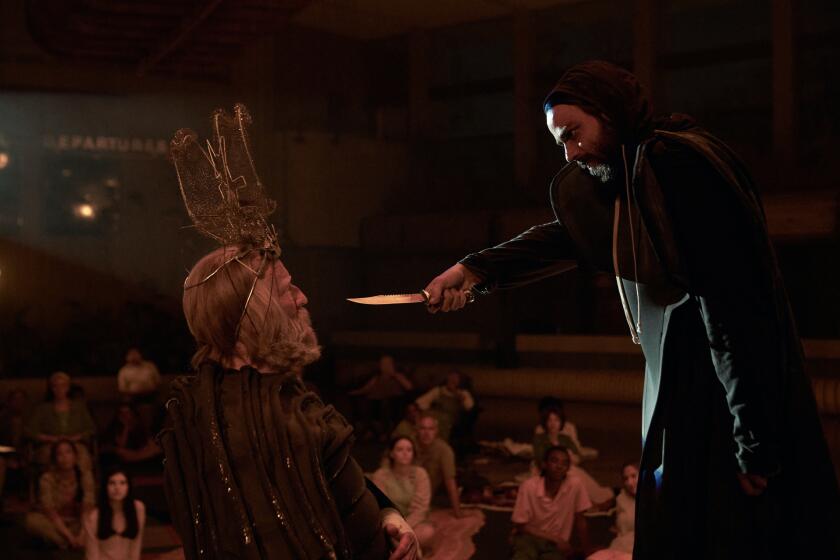- Share via
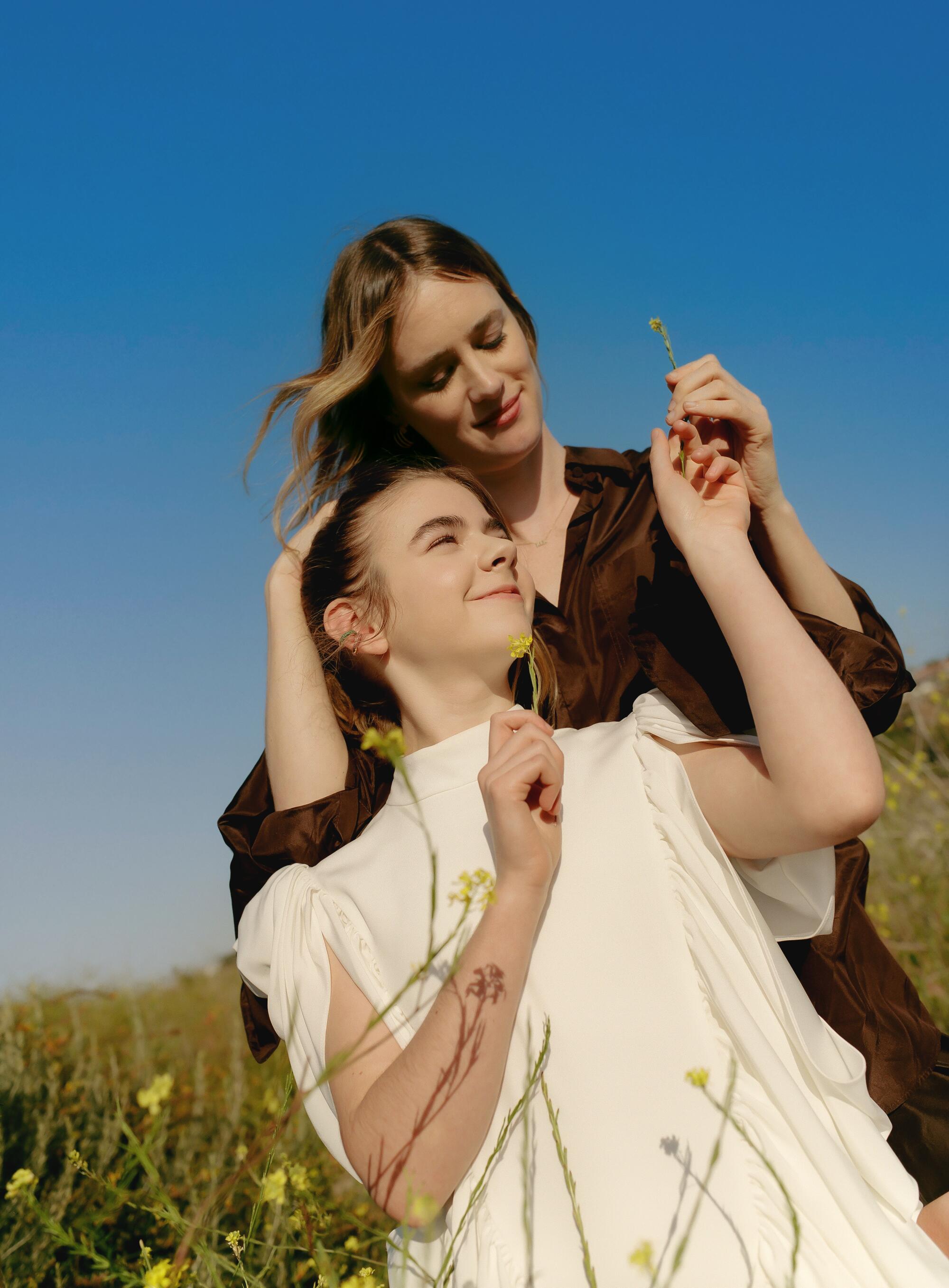
“Station Eleven,” based on the book by Emily St. John Mandel, is an intimate HBO Max limited series about the apocalypse. In it, a global flu pandemic wipes out nearly everyone, but a troupe of Shakespeare devotees re-creates civilization by performing the Bard’s plays. It’s also the story of Kirsten, a preteen, orphaned actor who grows up performing with the troupe. But Kirsten is such a big role it took two actors to play her: Matilda Lawler, now 13, as the girl, Mackenzie Davis as the adult.
The pair had very few scenes together yet found a common language — and not just in how to interpret the heroine of the story. As they tell The Envelope, they also discovered a shared love … of pens.
The two of you don’t have many scenes together, yet you’re playing the same character. When you met off-camera for the first time, what did you discuss?
Lawler: Pens.
Davis: I love felt tip; I have a brand that I’m very loyal to. Matilda, I believe, loves a roller ball.
Lawler: Yeah, I bring your pens everywhere. They’re really nice.
Davis: When we hung out in L.A. a few weeks ago, I was like: “Oh, my God, did Matilda think that was such a little-girl present? That I gave her a bunch of pens at the beginning of the show?”
Lawler: No, I thought it was cool. I literally have too many pens.
Davis: I think pens are cool, and it’s nice to find like-minded people.
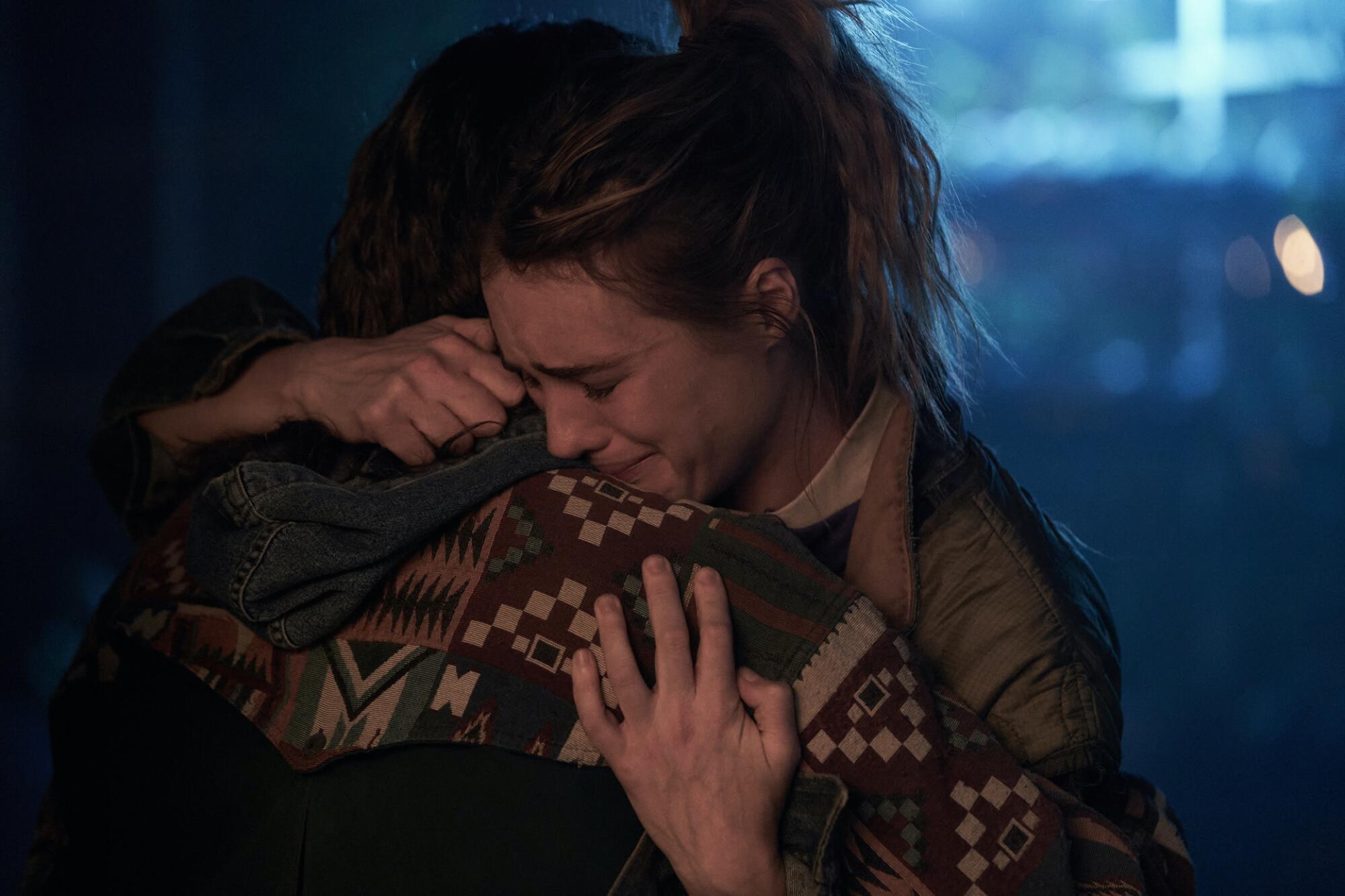
Once you got pens out of the way, did you end up talking about the character?
Davis: We didn’t focus on that. Matilda originated the character, so it was already on film before I stepped in. She had a lot of say in who the character was. But as much as I think I’m still 12 in so many weird ways, I’m also very different from how I was as a child. With a [show] like this, it didn’t feel like we had to say things like, “How do we twitch our eyebrow?” That’s a stupid example, but it felt more important that we spent time together and have this osmotic understanding of each other. That was the most helpful thing, just to be around her and watch her work.
Even the villain is kinder in showrunner Patrick Somerville’s vision of disaster.
You both read the book once the project came into your life; was it odd to be reading about a virus that ends civilization just before living through the pandemic?
Davis: It was such an interesting document to read in September 2019. It’s a powerful living document. The reception to the show feels like the final piece in this long, traumatic puzzle, like closure in a strange way. We didn’t really know what we were making, or how it was going to make us feel, and then it ended up being this positive conclusion to a f—-up two years.
Lawler: It was nice to see, and also scary, that someone had been writing about this — and now, a very different form of it was happening. It was a little bit comforting to know that people had thought about this before. I don’t know why that would be comforting, but it was.
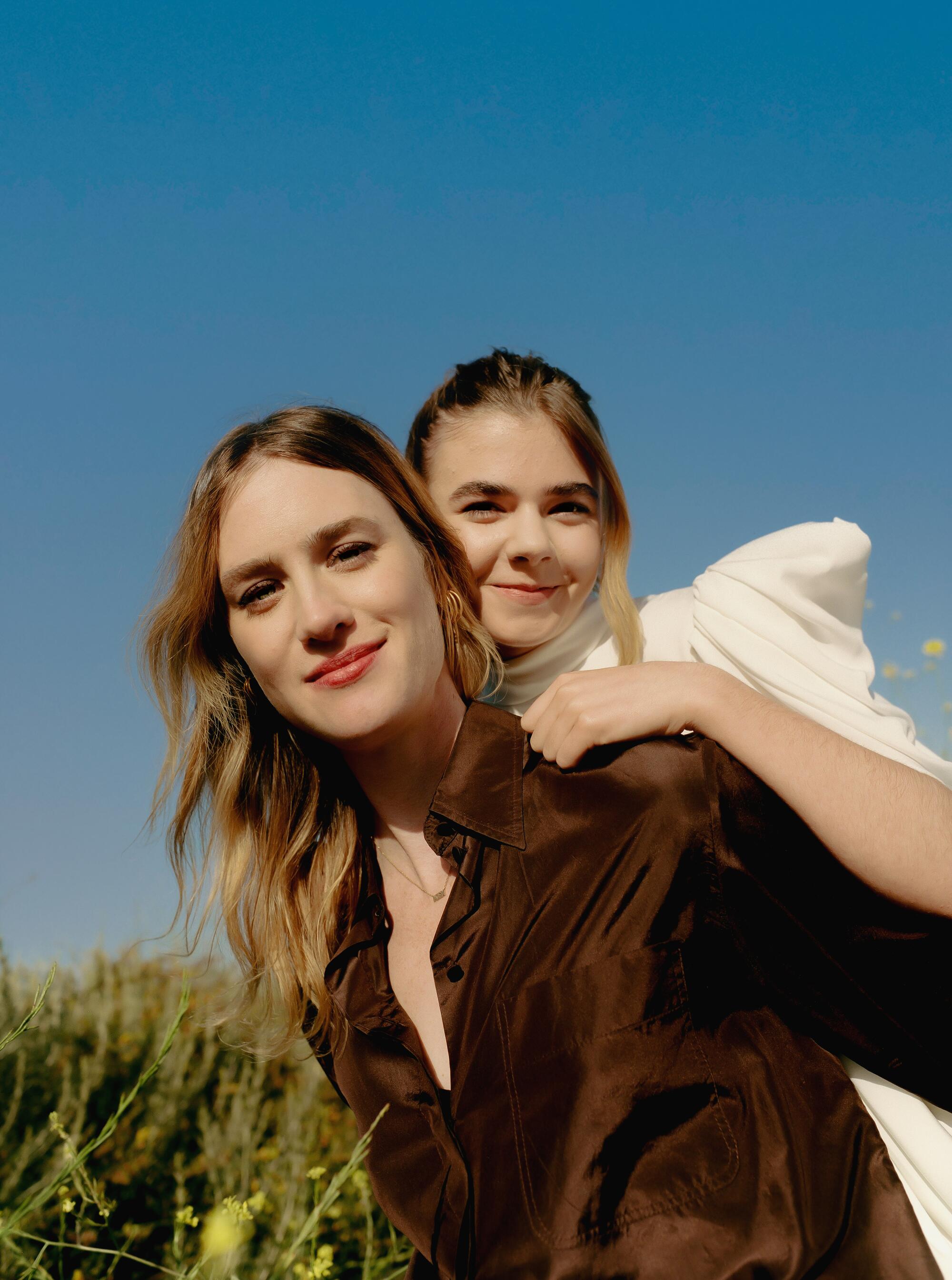
Did it surprise you that “Station Eleven” got as much attention as it did, considering how it reflected a lot of real-life trauma we were going through?
Davis: Deeply. The timing of it coming out couldn’t potentially have been worse: Omicron was peaking, and it was Christmas; that’s a tough sell to people. It’s so beautiful once you give yourself over to it, but even that beauty is marked with sadness. It’s a combination of a bleak premise with an earnest heart. Both of those things are hard to land in a way that’s interesting, not saccharine, but not punishing.
Mackenzie, you’ve had quite a few roles in the world of genre and science fiction — “Halt and Catch Fire,” “The Martian,” and now this. Is that what you gravitate to, or is it a coincidence?
Davis: Coincidence. This doesn’t feel science fiction to me; this is a speculative disaster [show]. But there are a lot of interesting women to play in genre, where they’re not constrained by the conventions of real life in the exact same way. I find really good roles in genre; the stories have been more interesting than the other stuff that’s come my way.
Both the book and the limited series of “Station Eleven” focus on how even though civilization may have collapsed, people still need to tell stories. What message do you think that sends?
Lawler: It goes to show how stories can connect people. Stories are a really important part of humanity. So even when the world ends, we do hold on to stories.
Davis: That’s really beautiful.
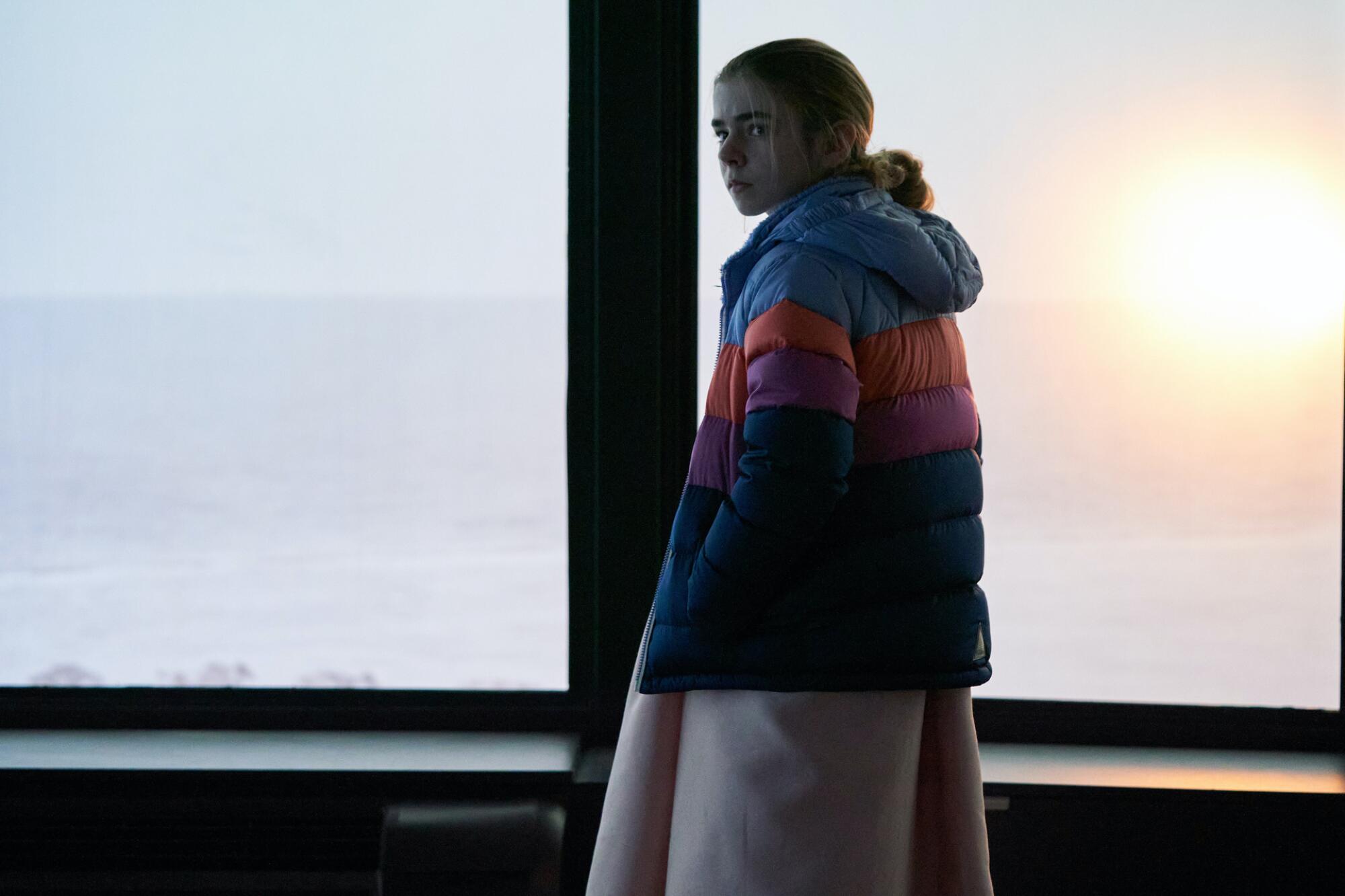
More to Read
From the Oscars to the Emmys.
Get the Envelope newsletter for exclusive awards season coverage, behind-the-scenes stories from the Envelope podcast and columnist Glenn Whipp’s must-read analysis.
You may occasionally receive promotional content from the Los Angeles Times.
